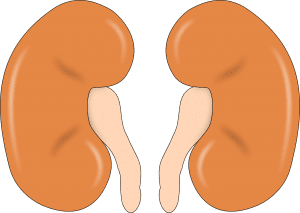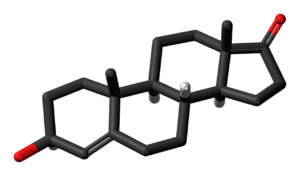C3 Glomerulopathy
What is C3 glomerulopathy?
C3 glomerulopathy is a group of conditions that result in kidney malfunctions, which are typically progressive. There are two main forms: C3 glomerulonephritis and dense deposit disease. Both of these forms affect one to two out of every million people.
What are the symptoms of C3 glomerulopathy?
The major symptoms include proteinuria, low levels of proteins in the blood (specifically the C3 protein), blood in the urine, and lower amounts of urine. Kidney problems are progressive, and affected individuals typically enter end-stage renal disease ten years after diagnosis.
What causes C3 glomerulopathy?
Many genes can be mutated and result in C3 glomerulopathy. Some of these include the CFHR5, C3, and CFH genes. The similarity between these genes is that they make proteins to regulate the complement system, which is part of the immune system. They increase the activation of this system, which then damages the glomeruli in the kidneys.
The mutations that cause this condition are typically sporadic, but there are cases in which multiple members of the same family are affected. Medical professionals acknowledge that more research must be done to fully understand inheritance.
How is C3 glomerulopathy diagnosed?
The only way that a concrete diagnosis can be found is through a kidney biopsy. Dense deposits of the C3 protein can be seen in a microscope, leading to a diagnosis.
What are the treatments for C3 glomerulopathy?
No treatment exists that is specific to C3 glomerulopathy. Doctors aim to control blood pressure and reduce proteinuria. They may also prescribe Eculizumab.
If patients do enter end-stage renal disease, dialysis and a kidney transplant are necessary.
Where can I find out more about C3 glomerulopathy?
C3 Glomerulopathy Articles

FDA Approve Drug That Targets Root Cause of Life-Threatening Kidney Disease Affecting Children and Young Adults

The FDA Approves a Drug that Brought a 67% Reduction in a Life-Threatening Kidney Disease Affecting Young Adults and Children

FDA Expands Empaveli Approval to Treat Rare Kidney Diseases, Offering New Hope

Novartis Releases Data on Iptacopan, a C3 Glomerulopathy Treatment

Pegcetacoplan Registrational Programs Begun for C3G, ALS, and IC-MPGN


New Drug Application Submitted for Non-Steroidal ANCA-Associated Vasculitis Treatment



